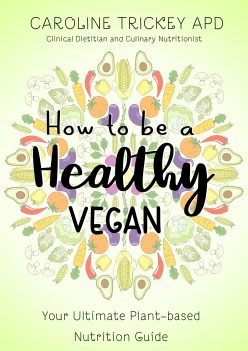Can I eat processed meat?
The World Health Organization (WHO) released a report last October linking processed meats and red meats to an increased risk of cancer.
In fact, the findings came from the International Agency for Research on Cancer (IARC), an organisation that researches the causes of human cancer and acts as an adviser to the WHO. After prior research suggested that consumption of red and processed meats was linked to increases in the risk of several cancers, the IARC made it a priority to conduct a comprehensive examination on the issue.
The IARC reviewed data from more than 800 studies that looked at the link between the consumption of red or processed meat and the risk of certain cancers and was able to conclude that there is sufficient evidence that the consumption of processed meat causes bowel cancer as well as stomach cancer. They also concluded that the consumption of red meat is “probably carcinogenic” to human and is associated with bowel cancer, pancreatic cancer and prostate cancer. Though, in both cases, the largest body of epidemiological data concerned bowel cancer.
What is processed meat?
Processed meat refers to meat that has been salted, cured, fermented, smoked or transformed through any other process to enhance flavour or increase shelf life. Examples of processed meat include hot dogs, ham, sausages, pepperoni, bacon, corned beef, beef jerky, salami, as well as any canned meat (spam).
So what does this mean?
Since risk increases with the amount you eat, obviously the less you eat, the less risk you will have.
Now if you have a family or personal history of bowel cancer, only you can make the call if you want to include any at all.
The best piece of advice I can offer is to generally eat more plant based foods as we know that they reduce your risk of anything, including most types of cancer.
http://healthyhomecafe.com/eating-well/trickey-nutrition-questions/why-you-need-to-avoid-processed-meats/
Why do processed meats increase your risk of cancer?
Researchers have found that processing meats can result in the formation of carcinogenic chemicals. The smoking process, for example, may lead to the formation of cancer-causing compounds called polycyclic aromatic hydrocarbons (PAHs). Also, processing meat often involves using nitrogen-based preservatives to prevent bacterial growth and as colouring agents. Nitrates are particularly problematic, since the body converts them to nitrosamines, which are carcinogenic.
What about red meat?
One theory revolves around heme iron. Plants contain only non-heme iron, while animal proteins have a mix of heme and non-heme iron. Beef contains the highest proportion of heme iron, with about 69% coming from the heme type. Pork is roughly 39% heme iron. A number of studies have shown that higher quantities of heme iron have been linked to an increased risk of bowel cancer. Additional research has indicated that the process of digesting red meat could lead to the release of chemicals that produce genetic damage to bowel cells in just a few weeks.
Cooking methods may also play a role. High-temperature cooking, such as grilling, pan-frying, grilling and especially barbecuing (especially those involving smoke from meat juice dripping onto the flame), can form more cancer-causing compounds, such as heterocyclic amines (HCAs), or polycyclic aromatic hydrocarbons (PAHs).












